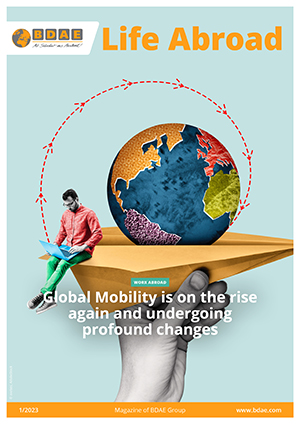How the world expresses laughter online
Rofl, LOL, LMAO, or *grin*, we express our laughter online in many different ways. But how does laughter online differ from country to country?
Although laughter is universal, we don't all express it in the same way. To find out how laughter is expressed in different languages around the world, language learning platform Preply has created a map of online laughter.
The most popular English transcription for laughter is haha, which has also crept into other European languages. In Germany, we use both haha and the English abbreviation LOL ("laughing out loud"), alongside expressions with asterisks like *grins* (sometimes abbreviated as *g*) or *lach*.
Poland is another country where people often use English onolmatopoeias like haha. However, Polish teenagers also express their pure joy with the word heheszki, which means "kick and laugh". This is not much different from the English ROFL ("rolling on the floor laughing").
Social media users in France have their own popular abbreviation MDR, which means "mort de rire" (dead with laughter), while Spaniards express their laughter with jajaja - or jijiji if they are feeling mischievous. Italians prefer ahahah or eheheh, as there is no aspirated "ha" sound in Italian. Portuguese in Portugal and Brazil usually express their laughter by kkkk or rsrsrs (an abbreviation of riso, which means "to laugh").
Laughing with the help of numbers is popular in Asian languages
While Koreans, similar to the Portuguese, mostly use kkkk (or 六六六 in the Korean alphabet) to show their laughter online, speakers of several other Asian languages use different number sequences.
55555 is the preferred method for Thai internet users because the number 5 is pronounced like "haa" in Thai. Speakers also add a + sign to indicate a particularly hearty laugh, so something like 555555+. In mainland China, people use the numbers 23333 to write laughter, and Malay speakers use a combination of letters and numbers to write Ha3, as "ha" x 3 equals "hahaha".
Different ways to laugh online
Turkish: hahaha, ahahah, jsjsjsjs, weqeqwqewqew, or, the most interesting variation, and the most common, random letters like dksajdksajdoşad.
Arabic: Although each country has its own dialect (for example, Egypt, UAE, Morocco, Algeria, Tunisia), laughter in standard Arabic is written as ههههههه and pronounced like "hahaha".
Japanese: www, as laughter ('warau' / 笑う) and smile ('warai' / 笑い) start with a 'w' sound in Japanese.
Scandinavian languages: Norwegian has funny spellings like Høhøhø, and in Sweden they use *asg*, which stands for asgarv ('intense laughter').
Estonian: IRW, an abbreviation of the Estonian verb irvitamina, which means 'to laugh in a special way' or 'to smile'.
French: Although you will also find 'héhé', 'hihi' or 'ahah', the most common form is 'MDR', which means 'Mort de Rire' (Dead with laughter). To raise the tone, the French use "PTDR" (Pété de Rire, which literally means "to fart with laughter") and "XPTDR" (Extrêmement Pété de Rire, which means "to fart extremely with laughter"). An evil laugh is written as "mouhaha".
The full list of the 26 countries can be found here.

